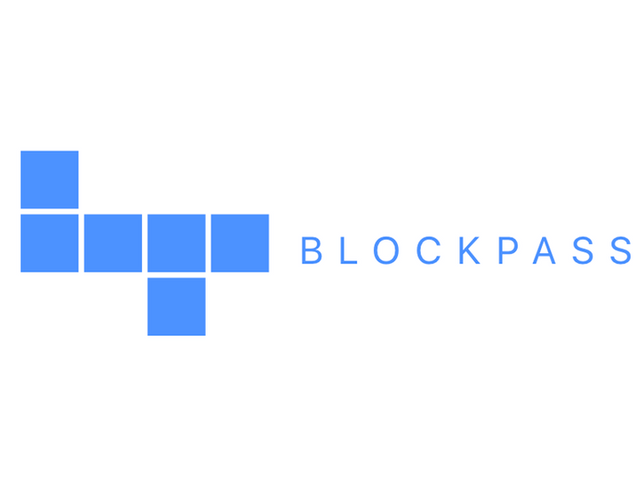
ICO Pass vs Blockpass — the Battle For the Blockchain KYC Market
In September, 2017, Equifax, a consumer credit reporting agency in the U.S., got hacked. The company lost personal information of 144 million U.S. citizens. That is about half the American population. How is it possible that a cataclysmic event like this can happen in the 21st century?
The emergence of new technology, namely blockchains, or distributed ledgers, can be the key for saving, securing and verifying human (and device) identification in the future and prevent such devastation identity thefts. The technology, although it has had its shortcomings, is here to stay. Its very nature of storing encrypted data in an immutable and tamper-free manner, provides developers, financial institutions and governments a free and trustless (meaning that as everything is written on the blockchain, mutual trust between two parties becomes irrelevant) environment to create apps, or Dapps (decentralized apps), for the ever-important Know-Your-Customer (KYC) procedures. These procedures are required for hosting and participating in ICOs, for banks to check the identification of their customers and the origins of their assets and for governments to know who exactly their citizens are — just to mention a few examples.
According to an online article (please see references below), ICOs have already raised almost $0.5 billion in the first month of 2018. Did all of them follow due diligence and completed their KYC checks? How was the process for them? Slow? Inconvenient? What about the ICO participants? Did they enjoy the KYC procedure applied? Or was it a nuisance?
In this article I will compare two companies who are attempting to create a trustless, fast and reliable way to do KYC checks. They are each building an app (and a platform) to streamline the process, both for ICO hosts and participants. The first one is…

Blockpass — a Blockchain Identity Protocol for the Internet of Everything
Blockpass, a Hong-Kong-based company, who have previously worked with machine identity, and are now attempting to create an all-around platform for identity verification between humans and between humans and machines. Their catch phrase is “self-sovereign identity”, a user-centric identity platform that is decentralized as opposed to siloed identities like Google and Facebook that store identity informaton and sell it to companies who then are able to create targeted ads. For example, if one has a receipt from an airline company in their email, it is not uncommon to be targeted with flight ads. This is disconcerting and something that hopefully will not exist in the future. Because why should huge corporations own all your data, including email data, and use it as they wish? YOU should own YOUR data. Not Google. Not Facebook.
Blockpass is developing an app for Android and iOS, which will work as a verification tool between the user and the service, such as a bank, a government website, an exchange or an ICO. The protocol will compare the two hashes and if identical, identification is verified. Blockpass will have an utility token in the system, which rewards users and services. The app, according to their CMO Hans Lombardo, should be available for use in March-April 2018. However, not much more information on the app could be found. What exactly will it accomplish and how?
While the idea of an all-encompassing ID-verification protocol is a noble one, I am personally concerned exactly about this, perhaps over-ambitious goal. Maybe Blockpass should first get a working app out for, for example, ICO KYC verification and then discuss future plans. Moreover, what exactly does the utility token do? Why is it needed? Going over at their website, https://blockpass.org/, there are no LinkedIN or other links to their team. However, a Google search reports that the CEO, Adam Vaziri, is a director or Diacle, a UK-based company which assists blockchain & fintech projects with compliance. Possibly this team can deliver, but having more transparency would be welcome. Next, I don’t see a single whitepaper or even a roadmap of the project. What has been developed so far? Where is it? How long did it take? What are the future goals? How will Blockpass get there? There is no information like this on their website, and this rings an alarm bell in my head. Many investors would never put a cent into anything that does not provide them with a whitepaper. The lack of transparency here concerns me. Next let us cover…

ICO Pass
I have previously written an introductory article on ICO Pass and Notakey, a Latvian startup behind the project. Please refer to my earlier work for an overview on the project. Below I will briefly explain the main points of my post. According to Notakey…
ICO Pass is a suite of tools for gathering, verification and exchange of know-your-customer (KYC) information. The >target audience are tokensale organizers on the Ethereum blockchain.
For each contributor, ICO Pass gathers:
— full name
— date of birth
— mobile phone number
— nationality and country of residence
— address of residency
— photo of ID document
— photo of person.
ICO Pass will be an Ethereum blockchain-based app that verifies the identity of both the participants and the host of an ICO. It will do it fast (about 7 minutes), inexpensively (about 7 Euros) and in a fully automated fashion. No third-party agents are required. The KYC data will be reuseable in future ICOs, should the ICO host decide so. Moreover, as said above, it will also check the identificaton of the ICO host, thus increasing transparency and trust between token buyers and token issuers.
There will be no utility token, but an ERC-20 security token, with a ticker ICOP. This security token will give 7% of the revenue generated by ICO Pass, back to the token holders — every quarter. No made-up functions for an utility token but a token which will generate returns.
Notakey will be releasing their app in a few days and will use their own app in their own upcoming ICO. Only 60 million tokens will be generated, of which 20 million will be sold at the ICO. The ICO is about to start in early March. There will be a soft cap of €0.5 million and a hard cap of €5 million. If you are interested in the token price: their ICO will be held as a Dutch auction, meaning that the price is not known until all tokens are sold or until the ICO ends. But the maximum price will be 0.25€ per token since a higher price will generate more than €5m.
Conclusion
I personally believe that while Blockpass has a noble goal of becoming an universal KYC protocol, ICO Pass has an edge here as they are at the moment concentrating solely on ICO KYC checks and not trying to solve everything at once. For example, banking institutions at the moment do not even employ the blockchain yet (though probably will in the future), so offering them Ethereum blockchain app doesn’t make much sense. However, the Latvian team (who, by the way, won the Kickstart Accelerator in Switzerland in 2016 and forged partnerships with such banking giants as UBS and Credit Suisse) will develop a product directly aimed at banks later on. Moreover, should you hold any ICOP at the moment they release this new product for banks, you will automatically also get a slice of those tokens.
All in all, with the current information at hand, I have much more confidence in ICO Pass than I have in Blockpass. Both have strong teams, but there seems to be more transparency with ICO Pass. Just compare their websites and try to find detailed information — with ICO Pass everything seems much more transparent. Yet the future is unknown and anything can happen, but at the moment it seems that ICO Pass is closer to the finishing line in this war of knowing your customer, and your host, in the initial coin offerings.
References
Blockpass - Passport for a connected world
ICOs Have Already Raised Nearly Half a Billion This January
ICO Pass - Easiest way to do KYC checks
ICO Pass — The future of KYC
The Equifax Data Breach
Congratulations @mwarsell! You received a personal award!
Click here to view your Board
Do not miss the last post from @steemitboard:
Vote for @Steemitboard as a witness and get one more award and increased upvotes!
Downvoting a post can decrease pending rewards and make it less visible. Common reasons:
Submit
Congratulations @mwarsell! You received a personal award!
You can view your badges on your Steem Board and compare to others on the Steem Ranking
Do not miss the last post from @steemitboard:
Vote for @Steemitboard as a witness to get one more award and increased upvotes!
Downvoting a post can decrease pending rewards and make it less visible. Common reasons:
Submit